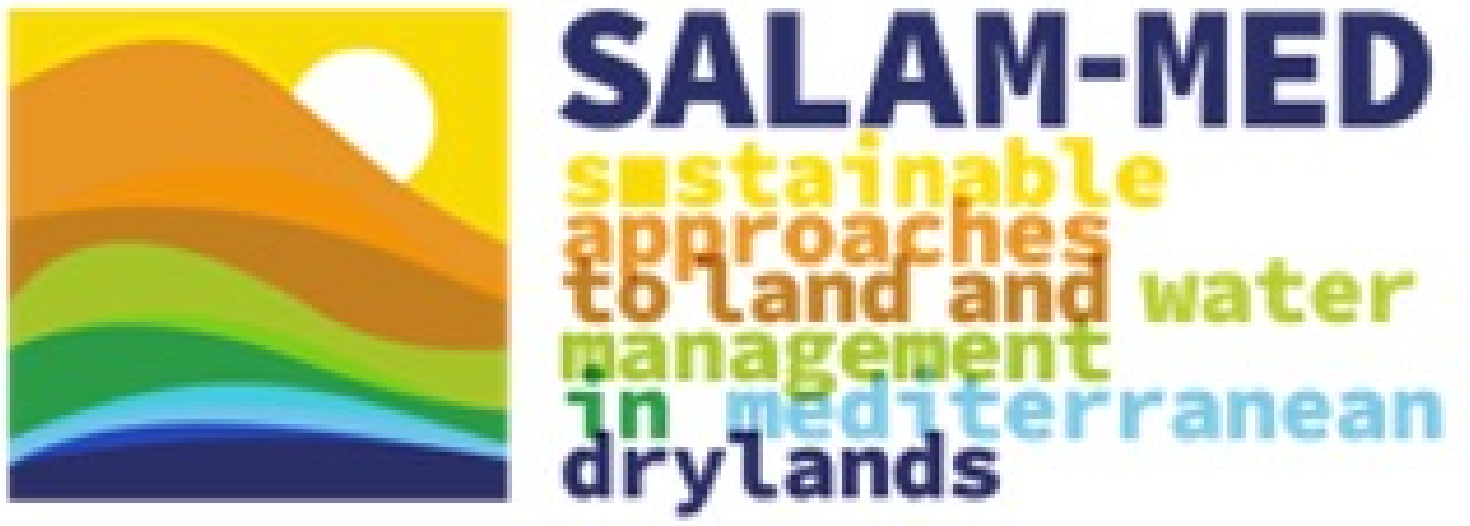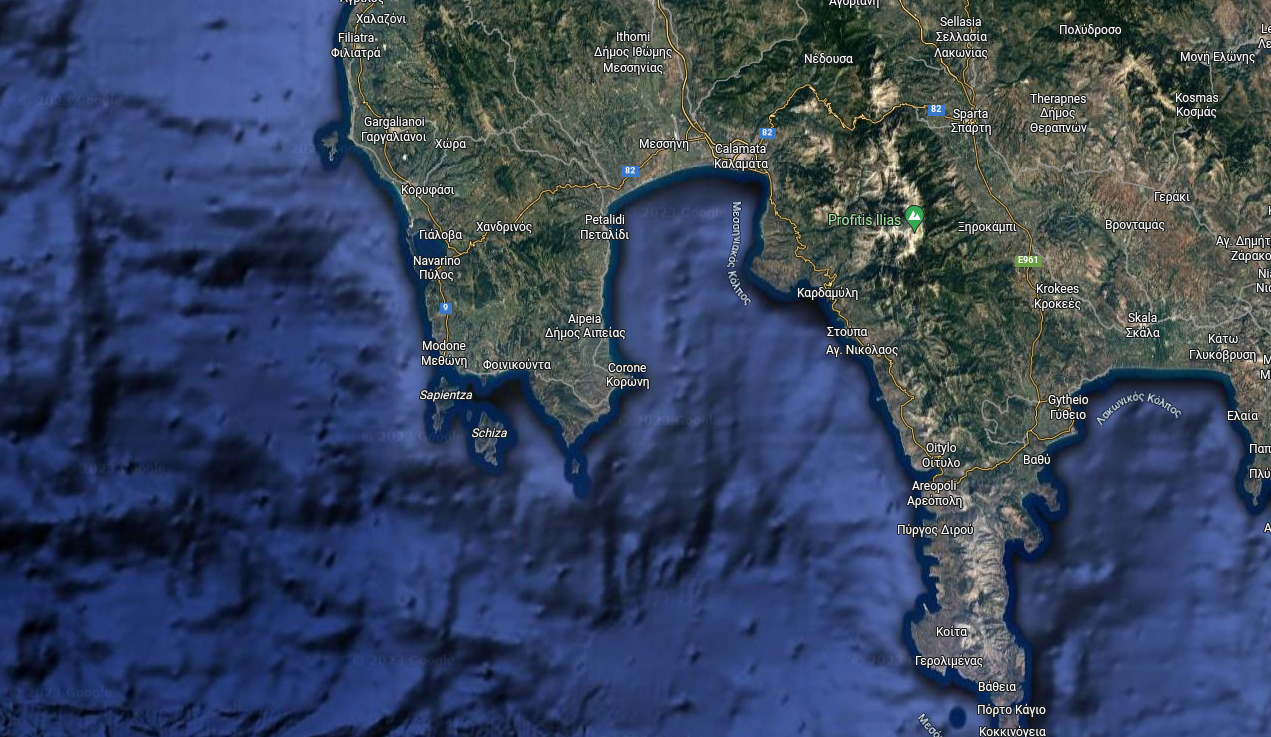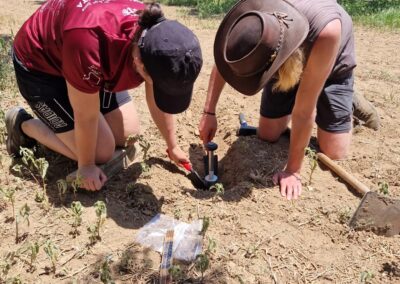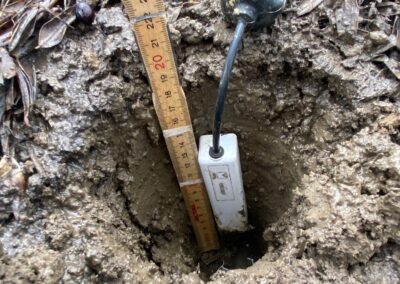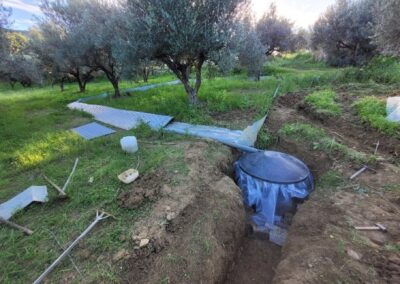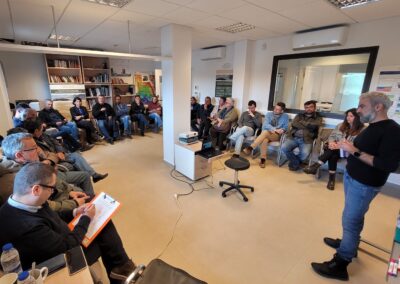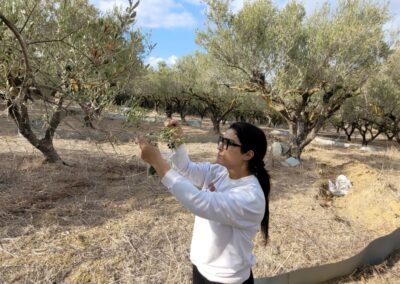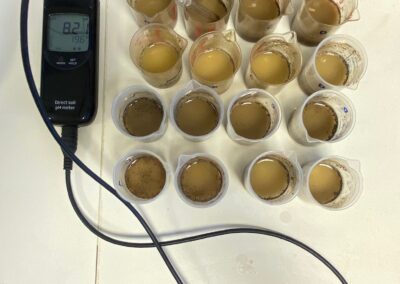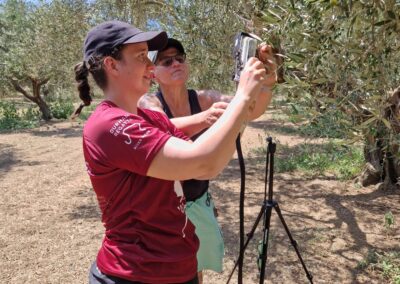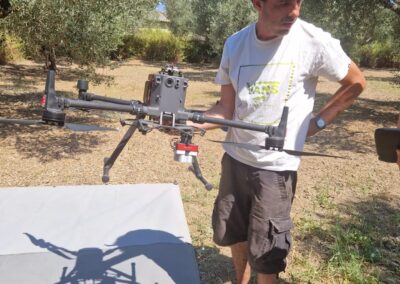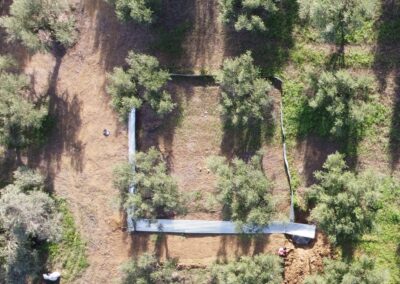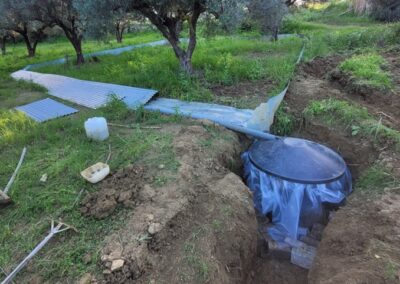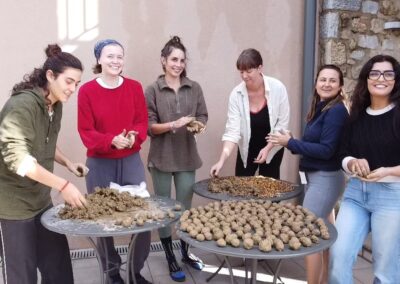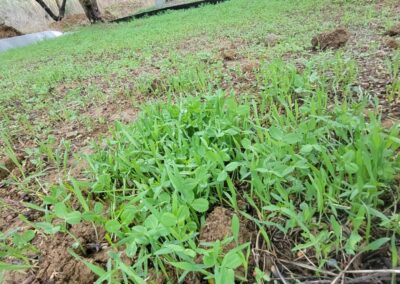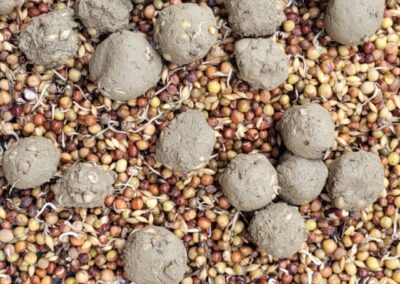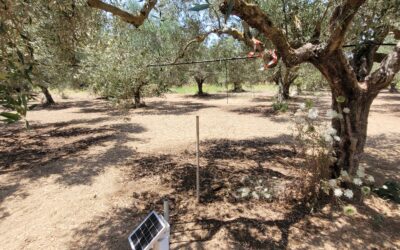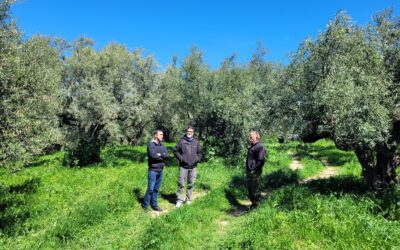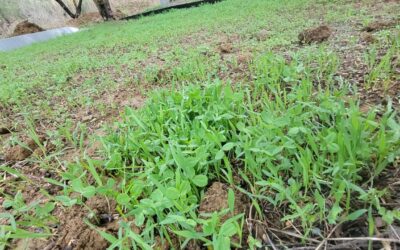Greece – Agorà LL
Technologies and Practical solutions developed here
Irrigation management in olive orchard
Soil management in olive orchard
Leader

Research Centre for Atmospheric Physics and Climatology
Profile
Coordinates: 37.0096N, 21.6911E
Size: 250 km2
Mean annual temp: 18.0 °C
Mean annual prec: 696 mm
Mean annual ETo: 889 mm
Aridity index: 0.78
Local population: 10500
Main land uses, crops and
animals: olives (70% coverage),
vineyards, vegetables
The Living Lab
The Greek Living Lab (LL) in Messenia promotes sustainable olive farming through active collaboration among researchers, farmers, and stakeholders. Inspired by the ancient "ΑΓΟΡΑ," it fosters dialogue, experimentation, and innovation to address climate challenges.
read more close
Activities include meetings to share knowledge and develop nature-based solutions (NBS), such as cover crops and phenology-based irrigation, enhancing environmental sustainability and productivity. Field experiments collect data on soil erosion, water management, and olive oil quality using advanced technology, guiding evidence-based practices. Co-design ensures stakeholder input in refining solutions, fostering trust and relevance. Training programs empower youth, encouraging their involvement in agriculture. Despite initial delays and technical issues, the LL's flexible and inclusive approach has successfully overcome these challenges, strengthening community engagement. The LL’s results include valuable data influencing sustainable practices and effective collaboration among local farmers, agronomists, and institutions. Efforts also explore agritourism synergies, promoting regional development and inclusivity, particularly for women and youth. Overall, the Greek LL exemplifies successful collaboration, innovation, and sustainability in addressing climate change impacts.
Last News from the Living Lab
This section aims to foster dialogue and exchange of information among key Living Lab stakeholders, continuously updating all participants on progress and news about activities carried out.
Phenology-Based Irrigation
Phenology-based irrigation aligns the timing of water application with the distinct growth stages of crops. This approach considers factors such as plant development, water...
Agora Living Lab
The olive tree, a symbol of Mediterranean cultural heritage, has shaped the landscape, economy, and traditions of the Messenia region in northwest Peloponnese for millennia. As...
Benefits of Cover Crops
Cover crops provide numerous benefits when used as a soil treatment in tree crops. They enhance soil health and fertility, improve soil structure, and stimulate microbial...
Stakeholders
The Living Lab is based on the collaboration of different stakeholders, each of whom brings useful skills and resources to address the area’s challenges in an integrated way. Their active participation enables the development of effective and shared solutions. This section presents the main stakeholders and their contributions to the project.
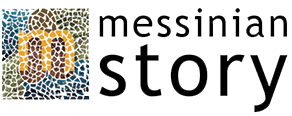
Messinia Story
Messinian Story is an authentic agritourism experience located in Korifasio, Messinia, near Kalamata, Greece. Surrounded by centuries-old olive groves, it offers guided tours that showcase the rich history and tradition of olive oil production in the region. Visitors can enjoy premium olive oil tastings, traditional…

Εύφορη γη
“Εύφορη γη” is a local Messinia media offering in-depth coverage of sustainable agriculture, environmental stewardship, and rural development. Its topics include expert articles, case studies, and interviews aimed at professionals, policymakers, and citizens interested in ecological farming, agri-env…

Captain Vassilis & Carmen Constantakopoulos Foundation
The CVF mission is to create a model of sustainable development in Messinia, that can inspire similar efforts across Greece and beyond. Placing people at the centre, it collaborates with society to design and implement innovative actions that promote equity, resilience, and sustainability…
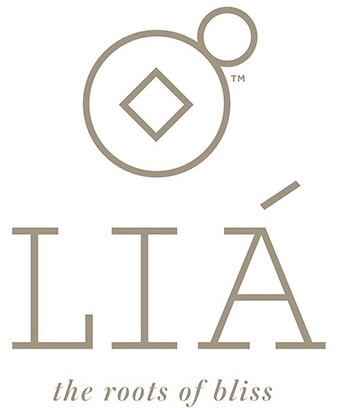
LIA
LIA is an award-winning olive oil producer based in Messinia, Greece, known for its high-quality, single-variety extra virgin olive oil made from Koroneiki olives. Blending tradition with innovation, LIA promotes sustainable farming, local culture, and community engagement through its Olive Oil Hub—offering educational programs, tastings…
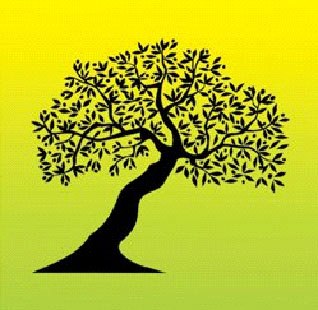
Bio-Kalamata
Bio-Kalamata Kotrotsis is a family-run business in Messinia specializing in producing high-quality organic olive oil. They manage their own olive groves, olive mill, and bottling unit—offering a vertically integrated process that ensures maximum freshness and quality…
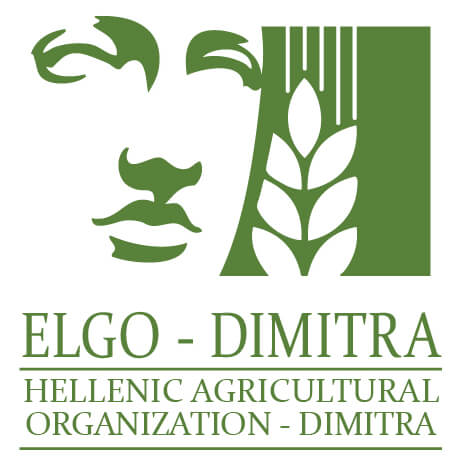
ELGO-DIMITRA
ELGO-DIMITRA with its 11 research institutes supports Greek agriculture to face the challenges arising from global changes. It brings together the largest applied agricultural research activity in Greece, aiming at mitigation and adaptation to climate change, conservation of natural resources, restoration of biodiversity, production of…
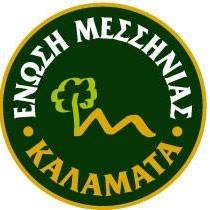
Messinia Union
Would you like to be added among the stakeholders?
Sign up and we will add you.
Technologies and Practical solutions developed in this Living Lab
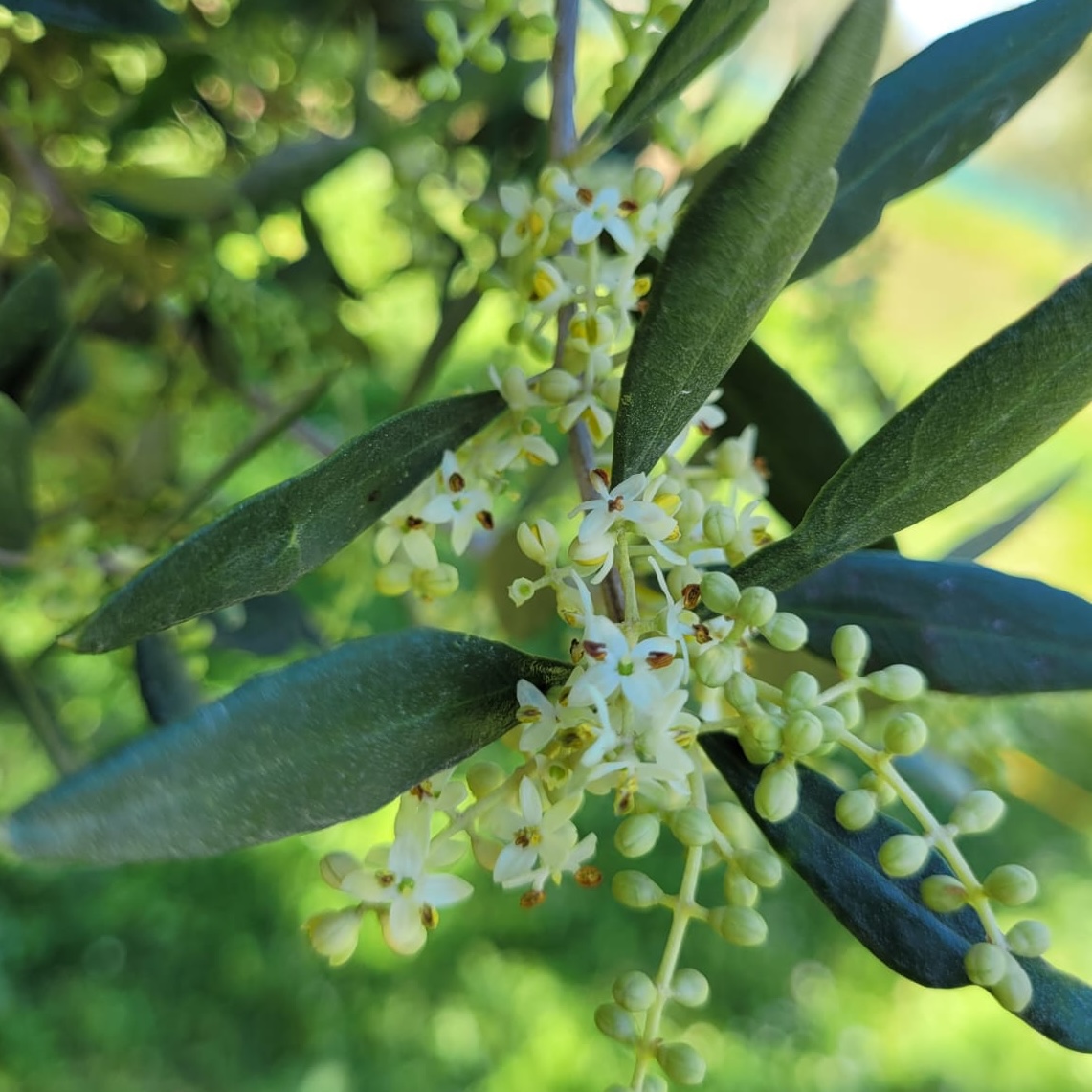
Irrigation management in olive orchard
Soil management in olive orchard
Use Case Contact
Stavros Solomos ssolomos@Academyofathens.gr
Giorgos Maneas giorgos.maneas@natgeo.su.se
Zenodo References
Stakeholders Signup

Messinia Story
Messinian Story is an authentic agritourism experience located in Korifasio, Messinia, near Kalamata, Greece. Surrounded by centuries-old olive groves, it offers guided tours that showcase the rich history and tradition of olive oil production in the region. Visitors can enjoy premium olive oil tastings, traditional cooking in a wood-fired oven, and hands-on activities like harvesting vegetables from the garden.
Combining gastronomy, culture, and nature, Messinian Story offers a unique, immersive journey into the heart of the Peloponnese, promoting agroecological practices and cultural heritage in Mediterranean landscapes. By fostering community-based tourism and traditional farming, it aligns closely with the SALAM-MED project’s goals of resilience, sustainability, and inclusive territorial development.

Εύφορη γη
Collaborating with Εύφορη Γη is of great importance for our Living Lab, as it enables us to effectively reach and engage local communities, professionals, and stakeholders who are directly involved in sustainable agriculture. By sharing our research activities through a respected and trusted local media outlet, we strengthen public awareness, foster dialogue, and encourage active participation in shaping in shaping innovative, climate-resilient solutions for the region.

Captain Vassilis & Carmen Constantakopoulos Foundation
The partnership with CVF is focused on co-developing and testing innovative, sustainable solutions that align with CVF’s mission to promote a resilient agricultural sector, social equity, and environmental health.

LIA
LIA is an award-winning olive oil producer based in Messinia, Greece, known for its high-quality, single-variety extra virgin olive oil made from Koroneiki olives. Blending tradition with innovation, LIA promotes sustainable farming, local culture, and community engagement through its Olive Oil Hub—offering educational programs, tastings, and workshops that connect people with the land and its heritage.
LIA has been invited to participate in the Greek Living Lab of the SALAM-MED project as one of the active local stakeholders from the olive oil sector. Their experience in sustainable olive cultivation, quality production, and community engagement brings valuable insights to the co-creation process. Alongside other local producers, cooperatives, and organizations, LIA contributes to developing innovative practices that reflect the region’s agricultural strengths and cultural identity.

Bio-Kalamata
Bio-Kalamata Kotrotsis is a family-run business in Messinia specializing in producing high-quality organic olive oil. They manage their own olive groves, olive mill, and bottling unit—offering a vertically integrated process that ensures maximum freshness and quality.
With deep roots in traditional farming and a commitment to sustainable, organic practices, they bring valuable expertise and a local perspective to the SALAM-MED Greek Living Lab, helping shape resilient and eco-friendly agricultural solutions.

ELGO-DIMITRA
ELGO-DIMITRA provides crucial scientific support, innovative farming techniques, and valuable data that help inform sustainable agricultural practices within the SALAM-MED project. Their strong connection to local farmers and ability to bridge research with practical solutions make them an essential partner for driving resilient and eco-friendly development in Messinia.

Messinia Union
The collaboration with the Messinia Union Agricultural Cooperative is of strategic importance for the Greek Living Lab in the SALAM-MED project. As one of the largest and most influential cooperatives in the region, the Union represents a wide network of farmers and holds a key position in the value chains of flagship Mediterranean products such as Kalamata PDO olive oil and table olives.
